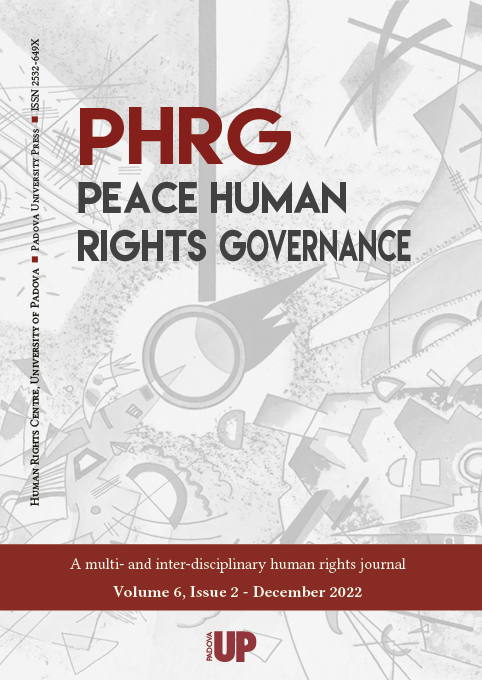Raccolte

Forced Displacement of Indigenous Peoples in the Amazon Caused by Environmental Hardship: a Case for Human Security
- Tipologia pubblicazione
- Articolo / Saggio
- Pagine
- 159-180
- Lingua
- EN
American states have proceeded to adopt legally binding instruments that open important bridges between international human rights law, domestic law of states and the indigenous communities. While these advances have been relevant from a legal point of view, indigenous peoples face threats from invasive extractive activities in their ancestral territories. The absence of the state in these territories raises the issue of the protection of fundamental rights in contexts where the cultural practices of indigenous peoples depend on the territory and its resources, and which are currently facing the dangers generated by the expansion of the activities of post-industrial societies. This paper discuses factual findings in the context of the applicable international criminal and international human rights law with regard to the possible commission of the crime of deportation and/or forcible transfer of large sections of the Indigenous communities of the Amazon, addressing in detail how factual circumstances leads to the possibility that the actions of transnational companies with the action, or inaction, of states had deliberately caused a situation of forcible displacement. The jurisprudential cases of the Inter-American Court of Human Rights show how a specific focus on indigenous peoples has been consolidated in recent years, building a common perspective for the states of the region and challenges for building societies respectful of indigenous territories and cultures.

